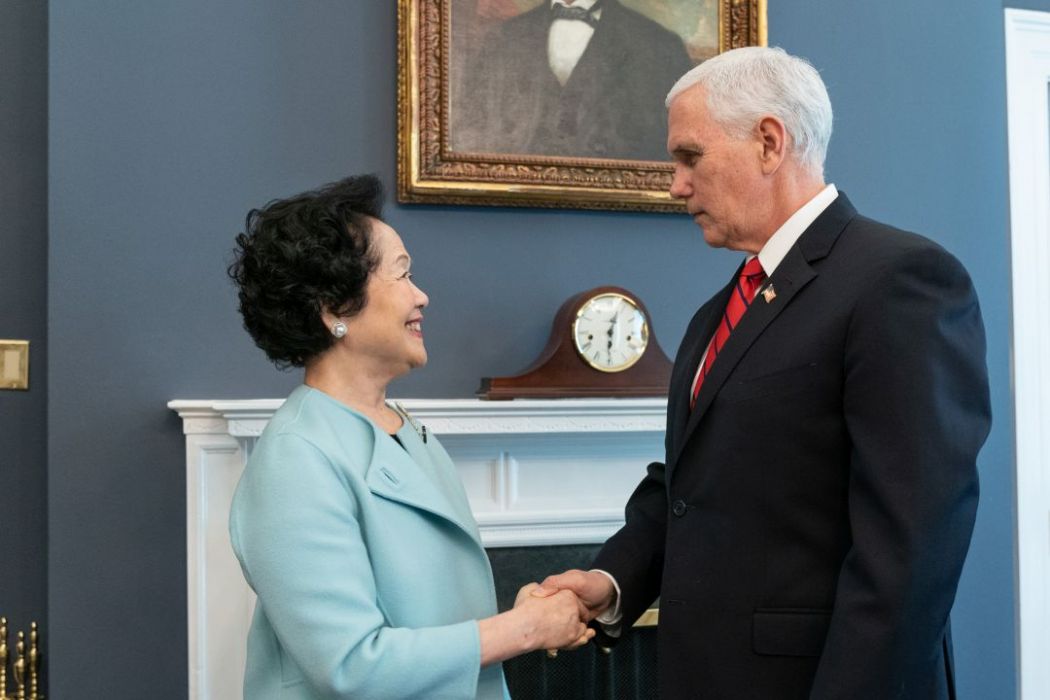Hong Kong’s former chief secretary Anson Chan has called on the chief executive to personally meet with foreign governments that have expressed concerns about the city’s freedoms and human rights.
“There is a real need for the chief executive and her team to go personally to America, to Australia, to Canada and EU countries, to hear these concerns and try to [allay them],” Chan told the press on Tuesday. “If you do not do this, then I’m afraid one of these days America will come to the conclusion that One Country, Two Systems no longer exists, [which is] their sole basis for giving Hong Kong preferential treatment.”
“My main message to the SAR government is this: There are concerns, you cannot dismiss these concerns simply by saying keep out of our domestic affairs,” she added.

Chan, along with pro-democracy lawmakers Charles Mok and Dennis Kwok, recently returned from a trip to the United States where they met with top figures such as Vice President Mike Pence and House Speaker Nancy Pelosi.
Kwok said that he told White House representatives that it was not in anyone’s interest to drag Hong Kong into the US-China trade war, and that the US-Hong Kong Policy Act should be kept in place.
Explainer: The US treats Hong Kong as a ‘separate territory’ for trade purposes, but for how long?
US authorities will continue to monitor the situation in Hong Kong closely, Kwok said, with representatives from the US-China Economic and Security Review Commission due to visit the city in May for a fact-finding mission.
Asked about whether US officials set out a “red line” for cancelling Hong Kong’s special treatment, Mok said the topic was not raised or discussed.

“We shouldn’t ask that question, because we are not trying to test their bottom line. It is not like, you can expel three Victor Mallets but not four – that attitude is not right,” Mok said, referring to the visa denial of the Financial Times journalist last year.
Kwok added: “I don’t know when they would consider that enough is enough, or what is the last straw on the camel’s back that would provoke them to revoke the US-Hong Kong Policy Act.”
“I don’t think they are considering that at the moment – I hope that day will never come as it would be disastrous for Hong Kong.”
Kwok defended the decision not to ask the US to punish Hong Kong, despite the perceived damage to human rights and One Country, Two Systems. He said the US-Hong Kong Policy Act involved many aspects and it would be an “oversimplification” to call for its removal.

The trio said that the White House was closely scrutinising Hong Kong, as proven by Chan’s meeting with Pence. Chan described the meeting as “brief” and said the first question from Pence – a devout Christian – was about religious freedoms in the city.
‘Insult Hongkongers’ intelligence’
US officials were also concerned about the Hong Kong government’s extradition law update, which would allow the extradition of foreign nationals in Hong Kong to places like mainland China, according to the trio.
In an unprompted and uncharacteristically strong rebuttal to pro-Beijing loyalist Maria Tam, Chan said Tam was wrong to defend the government’s plan.
Tam, who is vice-chair of the Basic Law Committee, previously said that China has signed international judicial agreements with 36 nations, which prove that its judicial system is widely recognised as legitimate.

“Her words were an insult to Hongkongers’ intelligence,” Chan said on Tuesday. “As [actor] Anthony Wong recently said, a person who has no sense of justice and cannot tell right from wrong is not much of a person.”
She called on the government to heed the public’s view on the extradition law, noting that thousands protested against it on Sunday.
The government should also stop trying to use Taiwan as a pretext for passing the amendment, since the law has already been rejected by Taiwanese authorities, she added.
The Hong Kong government has claimed that the law was necessary to plug “loopholes” in the current legal arrangement. The city’s security chief said that the law will have human rights safeguards, and Hongkongers will not be extradited to the mainland for political or economic crimes.
The bill will be debated at the legislature on Wednesday.
The Hong Kong Free Press #PressForFreedom 2019 Funding Drive seeks to raise HK$1.2m to support our non-profit newsroom and dedicated team of multi-media, multi-lingual reporters. HKFP is backed by readers, run by journalists and is immune to political and commercial pressure. This year’s critical fundraiser will provide us with the essential funds to continue our work into next year.

